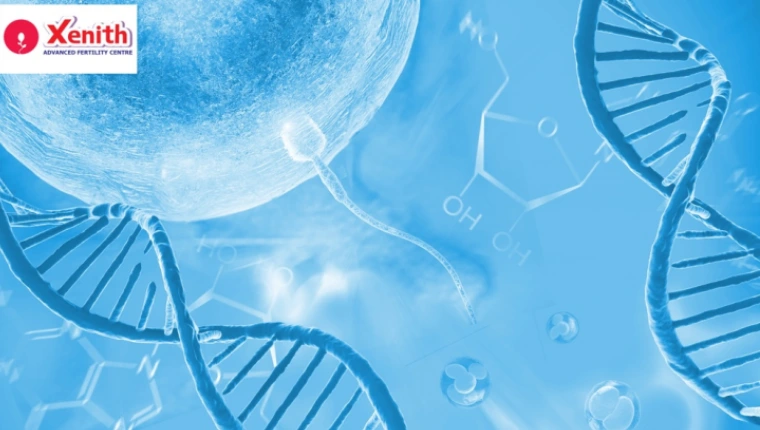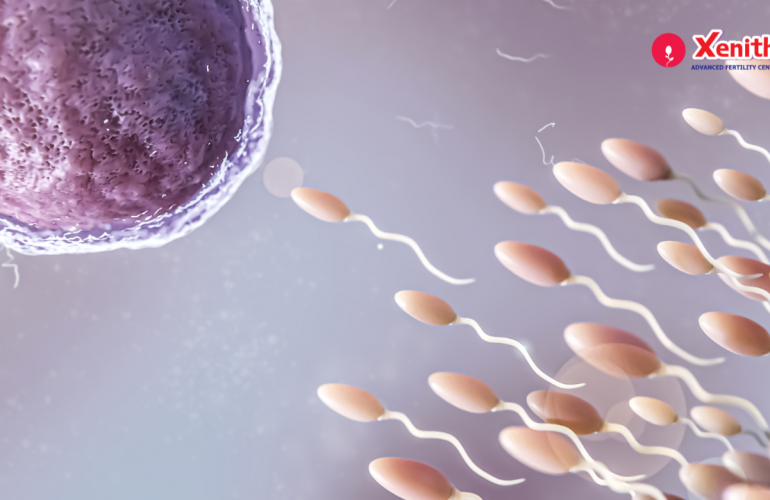In vitro fertilization (IVF) means fertilization of the egg with the sperm takes place in a test tube or somewhere outside the body. IVF is a procedure to help couples who are having problems in conceiving and having a baby. In this procedure, the woman’s ovaries are stimulated by medication so that many eggs mature at a time when it’s normal for only one egg to mature during ovulation. These mature eggs are then retrieved from the ovaries via a minor surgical procedure, fertilized with sperm in a laboratory setting, monitored for 3 to 5 days to see how it’s dividing and the healthy, fertilized embryo is then transferred back into the woman’s uterus for implantation, which if successful, leads to a pregnancy. So embryo transfer is the last step in the IVF process. Implantation refers to the process when the fertilized egg attaches itself to the uterine lining. There is about a 2 week wait after the embryo transfer to confirm if you are indeed pregnant or not. This 2 week wait can be nerve wracking because after all the running back and forth to the clinic and all the poking and prodding, the IVF procedure itself is all finished and now you just have to simply wait to see the results of all that effort. So, it’s important to have a positive outlook and keep your mind calm to reduce stress.
Many factors could negatively impact fertility and the chances of conception and pregnancy like age, genetic factors, health issues, and various lifestyle factors like obesity, smoking, poor nutrition, not getting enough sleep, having too much stress, and various other things. Many factors are not within our control but we can control our lifestyle and a healthy nutritious diet could positively support embryo transfer by giving the mother good health, energy, immunity and this in turn could affect the fetus growth and development. A healthy diet provides all the nutrients, vitamins and minerals such as folic acid, iron and various other nutrients needed for creating a good environment for implantation in the uterus. When proper levels of certain hormones are present, the uterus lining is better prepared to receive the embryo for implantation. A healthy diet includes fruits, vegetables, whole grains, lentils, nuts, chicken, certain fish, milk, yoghurt, olive oil, and drinking lots of water amongst other things. Similarly, if certain foods are avoided after embryo transfer, it could increase the chances of a successful conception and pregnancy. Here’s a list of 10 foods to avoid:

Free Thursday Consultation
Book Your Appointment- Junk foods, processed foods or sugary foods- are usually high in unhealthy fats, artificial flavours and colours, cholesterol and various chemicals as well as have high salt and sugar content. These could cause inflammation within the body and could play havoc on various organs in the body like the kidneys, could cause weight gain and could also affect hormonal balance. All this could also affect the growth of the embryo and the uterine lining for implantation to occur. Baked goods and sugary foods could drastically increase the sugar levels in the blood and affect insulin production in the liver which could in turn affect fertility. So, try to avoid white bread, pasta, fast foods, fried foods and baked goods. Consuming junk foods could also lead to larger babies which could lead to complications with delivery and increased risk of childhood obesity. (1). Excess salt could cause water retention and increase your blood pressure which could be harmful to both mother and baby.
- Alcohol- could decrease your fertility and increase chances of miscarriage as well as affect fetal growth, development and cause damage to the fetus. It could also cause hormonal imbalances. (2)
- Raw seafood – could have a bacteria called Listeria which could cause miscarriages, stillbirth, premature birth or other complications. Seafood is a good source of protein and seafood also has good fatty acids. But if it’s not cooked properly or eaten raw, it could cause an infection. Also, some fishes like tuna, mackerel, swordfish and shark are high in mercury which could affect fetal development and cause birth defects.
- Raw eggs- could have a bacteria called Salmonella which could cause food poisoning and this could in turn affect conception and infect both the mother and the fetus causing infection in the blood (sepsis) and affecting the brain and spinal cord of the fetus (meningitis). Certain foods like mayonnaise, raw cookie dough, and some salad dressings might have raw eggs in them although many of these products are usually pasteurized.
- Unpasteurized dairy- which includes any milk or milk products, could carry foodborne diseases and could be risky during implantation and to the developing fetus. Pasteurization is the process of heating the milk to a high temperature to kill off any harmful bacteria like E.coli, Salmonella and Listeria. A Listeria infection could cause stillbirth, miscarriage or early labor.
- Foods high in pesticides, fungicides, insecticides and herbicides- in fruits, vegetables and other foods might be present on the outer layer of foods affecting hormonal balance and human reproduction. So, try to eat organic food if possible or wash foods well before eating. Vegetables could also have some parasites causing toxoplasmosis which is especially dangerous to the fetus or other insects which could also decrease the chances of pregnancy. So cook the food well before eating it.
- Excessive caffeine- could constrict blood vessels reducing blood flow to reproductive organs and could affect implantation, fetal growth and increase complications during pregnancy. Although they say it’s okay to drink little coffee/tea each day, it’s better to just avoid it totally. (3) Energy drinks also have high amounts of caffeine and should be avoided.
- Foods with artificial sweeteners- like saccharin and aspartame should be avoided and you should consult your doctor for a safer alternative like agave syrup or Splenda because IVF success rates are lower in people consuming certain artificial sweeteners.
- Unripe Papaya- contains latex and papain enzymes which could trigger uterine contractions and be an allergen causing your body to react. Although ripe papaya is nutritious, it might be better to eat it in smaller amounts.
- Leftover foods- that have not been refrigerated properly could cause foodborne illnesses like vomiting, diarrhea, fever, stomach cramps or nausea. Leftovers might be safe if reheated well.
After embryo transfer, it’s also good to get rest, continue taking all the medications you are supposed to be taking at the proper times. Each person is unique and will have varying experiences of going through their IVF journey. It’s important to begin eating a balanced diet at least a few months before even trying to conceive because it takes time for its effect on the body and each person is dealing with different circumstances. Talk to your doctor or nutritionist for advice on your diet plan. There are a lot of myths about what not to eat during and after IVF. Other lifestyle factors like exercise are also important for improving chances of conception. Speak to the experts at Xenith Advanced Fertility Centre about creating an individualized diet plan and how to improve your chances of having a successful pregnancy.




